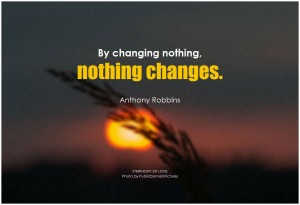The future is called “perhaps,” which is the only possible thing to call the future. And the important thing is not to allow that to scare you.
~ Tennessee Williams
Transitions are life’s way of making us look at our lives, what we are doing, and our present way of being in the world. Transitions are a natural part of living. We are in transition throughout our lives. When we are born, when we learn to walk and talk, when we go to school, when we graduate – these are a few of the transitions each of us experiences as we grow up.
 Transition is a Part of Life
Transition is a Part of Life
We all recognize other transitions as well. Marriage, babies, a new job, a transfer to a new place, a divorce, a death – these are also transitions. In addition, we age along the way – and for some people, aging is the most difficult thing they face. Aging says: “We’re getting older and things are starting to change in our bodies and minds.” We can no longer do what we used to do effortlessly, as even little things like bending over become more difficult.
Transitions as We Grow Older
The older we get, the more transitions we may experience. Retirement is one transition. We look forward to having time for ourselves in which to enjoy hobbies and activities, but retirement is also a time when we need to redefine who we are. How do we answer the question: “Who am I now that I’m not defined by my job description?” Mothers also experience this when the last of their children leave home.
As we age, we may get sick. We may not have adequate resources to keep us healthy in mind and body, and illness and dementia can start to take its toll. The loss of someone we love is especially painful. Although this can occur at any age, the older we get, the more likely it is to happen.
Aging may require relocation. If we have lived in a house with stairs for most of our lives, we may now find that we can no longer climb them, and we may be forced to move from the place where we have lived all our adult lives. If we are sick and need care, we may need to move to an assisted living situation or to a nursing home, or we may need to live with a relative.
 How Can We Embrace Change?
How Can We Embrace Change?
Fighting change, or burying our heads in the sand, will not help us. For example, if you were downsized out of your job, pretending that it didn’t happen and becoming paralyzed with fear and depression will prevent you from exploring other options. As Nikki Giovanni writes:
A lot of people resist transition and therefore never allow themselves to enjoy who they are. Embrace the change, no matter what it is; once you do, you can learn about the new world you’re in and take advantage of it.
But if you find yourself struggling with change, there is help. Christian counseling can help you to understand transition and to learn to cope with it. The bible tells us to “Trust in the Lord with all your heart. Never rely on what you think you know. Remember the Lord in everything you do, and he will show you the right way (Proverbs 3:5,6 – GNTD). Remember that the Lord our God is unchanging and that He will guide you.
Christian Counseling as You Face Life’s Transitions
As a Christian counselor, I am here to help you heal and find peace.
“Transitions,” courtesy of b k, Flickr CreativeCommons (CC BY-SA 2.0); “Changing Nothing,” courtesy of BK quote from Anthony Robbins, Flickr CreativeCommons (CC BY-SA 2.0)


